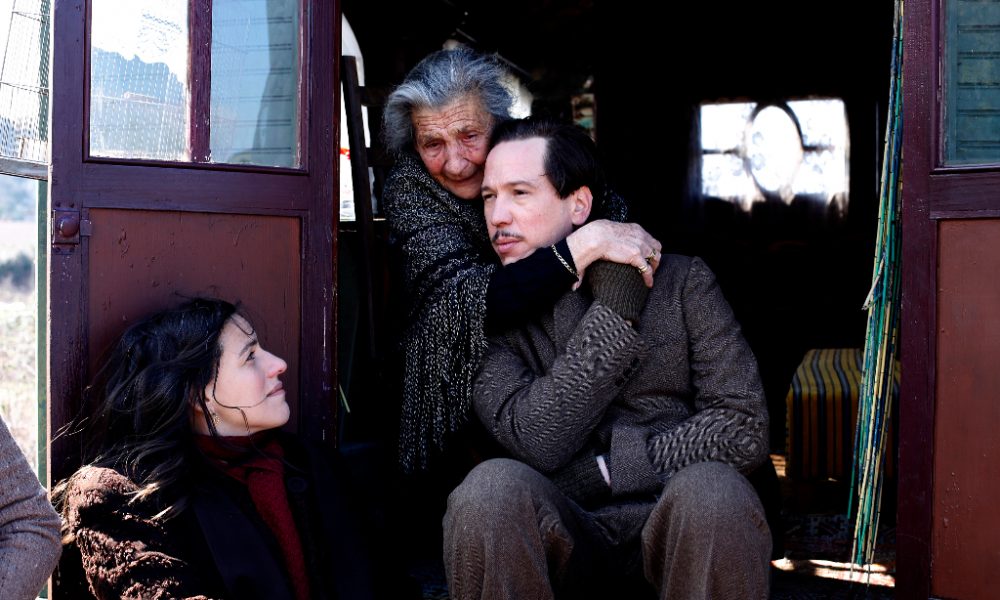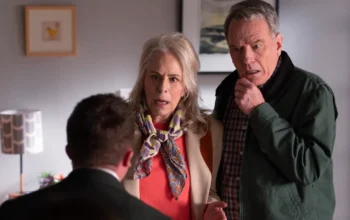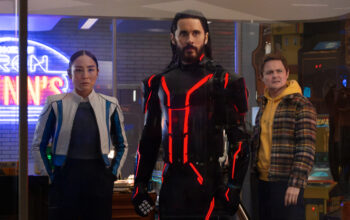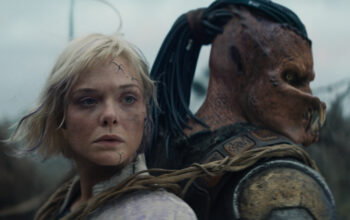Django

Ever since James Mangold’s Walk the Line, every subsequent music biopic has attempted to bottle the energy and journey of celebrated musicians by walking the exact same line. Occasionally, a director comes along to shift the tired rise and fall narrative to breathe new life into how we portray musical icons.
Despite having popularised the guitar solo well before Hendrix, Django Reinhardt is not a name that is commonly uttered outside the middle-aged, Tzigane jazz community. Director Etienne Comar uses this anonymity to his advantage by playing with how the musician’s personality is defined.
The story bursts open, in media res, as the jazz guitarist (played by Reda Kateb) is reaching the crest of his success in Paris, 1943. This is spoiled, however, by the occupying Nazis who attempt to force him to play for the troops in Germany. After escaping their clutches and making a break for the Swiss border, the carefree virtuoso is compelled to protect his gypsy brethren and save them from persecution.
The first and most important idea Django expresses well is the music itself. The narrative zigzags much like the star’s constantly darting fingers but always finds time to capture the atmosphere and emotion of watching one of the most incredible guitarists who ever lived play. The camera and editing accelerate in time with Django’s ascending rhythm and both only relent when the Nazi officers come crashing back into the story.
The period itself hamstrings the tale as we are treated to the same parade of rigid, meticulous Nazi characters we have seen thousands of times before. The second act slumps into regurgitated clichés but is redeemed by an explosive finale. Reda Kateb offers a stunning performance as a proto-rockstar who merely wants to drink and gamble until the war is over before answering a higher calling. Cécile de France plays Louise, Django’s former flame and double agent for the resistance, masterfully and provides some stunning, moral twists and turns.
Visually, the film captures the period in small details. The audience can almost smell the sawdust on the bar floor and taste the Pastis and cigarettes. Set design and cinematography work in unison to bathe the viewer in 1943. Comar’s feature debut is a compelling rendering of the Django Reinhardt story that excels when it refuses to walk the line.
Sean Gallen
Django does not have a UK release date yet.
For further information about the 67th Berlin Film Festival visit here.
Read more reviews from the festival here.
























Facebook
Twitter
Instagram
YouTube
RSS